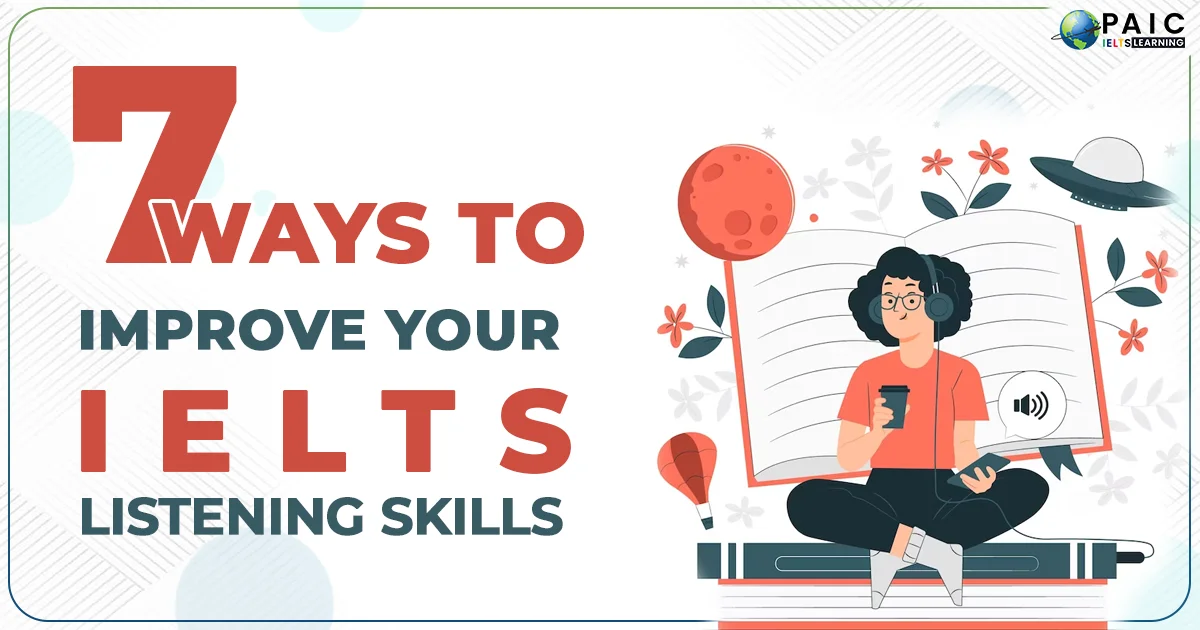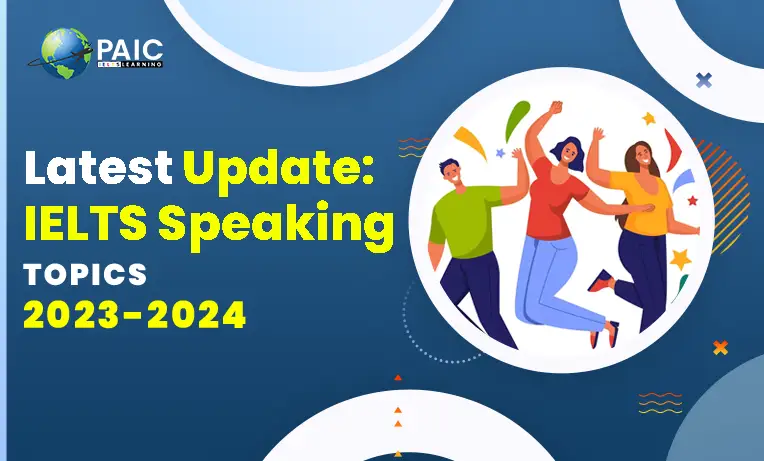Tags : ielts-preparation ielts-listening-exam ielts-listening
The IELTS (International English Language Testing System) exam is a widely recognised and accepted English language proficiency assessment. It consists of four main sections: Listening, Reading, Writing, and Speaking.
Among these, the IELTS Listening test can be particularly challenging for many test-takers. It evaluates your ability to understand spoken English, and success in this section requires practice and strategy.
This comprehensive guide will explore various techniques and tips to help you improve your IELTS Listening skills and achieve your desired score.
Listen to English as Much as Possible
One of the most effective ways to enhance your listening skills is by immersing yourself in English. This can be achieved by:
● Watching English-language movies, TV shows, and documentaries.
● Listening to podcasts and radio broadcasts in English.
● Engaging in conversations with Native English speakers if possible.
● The more you expose yourself to English, the more familiar you will become with accents, vocabulary, and different speaking styles.
Expose Yourself to a Variety of Accents
English is a global language spoken with various accents and dialects. English is rich in idiomatic expressions and colloquialisms. Familiarise yourself with commonly used phrases to avoid confusion during the test.
While listening to various accents is essential, it's also valuable to understand different pronunciations of common words. Some words may sound different depending on the accent.
To be well-prepared for the IELTS Listening test, make sure to:
● Listen to speakers from different English-speaking countries, including British, American, Australian, and others.
● Familiarise yourself with regional accents, as IELTS can include a range of accents in their audio recordings.
● Understanding diverse accents will ensure you can comprehend spoken English in any context.
Pay Attention to the Context
Understanding spoken English is not just about hearing words; it's also about grasping the context of the conversation or lecture.
“ Context can provide hints about the meanings of unfamiliar words or phrases. “
When a new word is used in a sentence with familiar words, you can often deduce its meaning from the overall context.
Besides official IELTS practice materials, consider using authentic English materials, such as TED Talks, academic lectures, and news broadcasts. These can expose you to real-world listening situations.
To improve your contextual understanding:
● Focus on the main ideas and the logical flow of the information.
● Identify relationships between different statements and ideas.
● This will help you follow the audio content more effectively and answer questions accurately.
Don't Worry About Understanding Every Word
Practice is the bedrock of success in the IELTS Listening test. Regularly practising with official IELTS materials, including different question types, is vital.
Additionally, simulate real test conditions by taking full-length practice tests to improve your time management skills and familiarity with the test format.
It's important to remember that you don't need to understand every single word in an audio clip. Instead:
● Concentrate on capturing the overall meaning and key details.
● Train your brain to fill in gaps in your comprehension with contextual clues.
● Being comfortable with occasional gaps in your understanding will reduce anxiety during the test.
Practice Answering IELTS Listening Questions
IELTS Listening tests your ability to answer various question types, such as multiple-choice, matching, and note completion. Regular practice with these question formats is crucial.
Test anxiety can hinder your performance. To manage nervousness during the test, practice relaxation techniques, such as deep breathing or mindfulness exercises.
Confidence is significant in how well you can concentrate and retain information, so staying calm is vital. Use official IELTS practice materials to familiarise yourself with the question types.
Pay attention to the skills needed for each question type, such as identifying synonyms or following instructions.
Take IELTS Listening Practice Tests
Simulating the actual test conditions during practice is crucial.
Find a quiet space, use headphones, and adhere to the time constraints to create a realistic testing environment. Developing effective time management skills ensures you can answer all the questions within the allocated time, preventing rushed decisions.
Regularly assess your progress throughout your preparation journey. Keep track of your scores, identify areas that require improvement, and adjust your study plan accordingly. Flexibility and adaptability are key to steady progress.
● Take full-length IELTS listening practice tests to mimic the actual test experience.
● Stick to the allotted time for each section to improve your time management skills.
● This practice will help you become comfortable with the format and time constraints of the real test.
Get Feedback from a Qualified IELTS Teacher
Consider seeking guidance from an experienced IELTS instructor. During your preparation, you may encounter concepts, questions, or listening passages that are particularly challenging.
A qualified teacher can provide clarification and strategies for tackling these difficulties, helping you build confidence and competence. Working with a teacher establishes a sense of accountability.
Regular sessions and progress checks with your teacher can keep you motivated and on track with your study plan. This accountability can be a powerful driver of improvement.
● Enrol in an IELTS preparation course or work with a tutor who can provide personalised feedback.
● Receive constructive criticism on your strengths and weaknesses.
● This targeted feedback will help you address specific areas that require improvement.
Additional Tips to improve IELTS Skills
As of now, we have a clear concept of various accents, Pronunciation Mastery, IELTS Listening Questions, and many other factors to enhance your IELTS listening skills.
Here are some additional tips to improve your IELTS score.
Try to Predict What the Speaker Is Going to Say:
As you listen, anticipate the direction of the conversation or lecture. This active engagement will keep you focused.
Take Notes:
During the test, you'll have the opportunity to take notes. Develop a system of shorthand or symbols to jot down key information, such as dates, numbers, and critical details.Review Your Notes:
After each section of the test, briefly review your notes to reinforce your memory and ensure accurate answers.
Conclusion
Mastering your IELTS listening skills is crucial for achieving your desired score on the IELTS exam. You can significantly enhance your listening abilities by immersing yourself in English, exposing yourself to diverse accents, and practising with various question types.
Additionally, seeking guidance from qualified instructors and following these comprehensive tips will boost your confidence and readiness for the IELTS Listening test. Remember that consistent effort and practice will lead to success on exam day.




